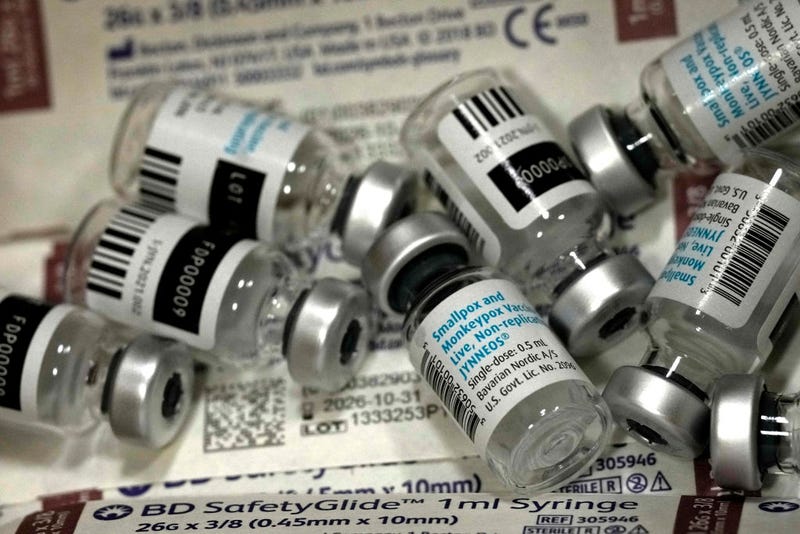
NEW YORK (1010 WINS/WCBS 880) — New York City’s health department released an advisory on Friday warning of an increase in local cases of mpox, formerly known as monkeypox, and urged medical professionals to monitor patients for cases.
Health officials said that there has been a “substantial” increase in reported mpox cases since October 2023 despite the number of cases being low compared to the amount reported during the 2022 outbreak.
There were between two and 20 confirmed cases a month from January to September 2023, but since October this average has spiked to 36 mpox cases per month, with a peak count of 51 in January 2024.
This spike, “along with the large outbreak of the more severe Clade I monkeypox virus (MPXV) in the Democratic Republic of the Congo, highlight the need for ongoing vigilance, especially approaching the summer when increased transmission may occur.” Deputy Commissioner Dr. Celia Quinn wrote in the advisory.
Mpox often causes a rash or lesions, which will go through several stages, including scabs, before healing. Rectal symptoms are also common, and fever, chills, headache and respiratory symptoms can also occur, according to the Centers for Disease Control and Prevention.
There are two types of the mpox virus. Clade I causes more severe illness and deaths, while Clade II, the type that caused the global outbreak in 2022, causes less severe infections with a more than 99.9% survival rate.
Health officials said that the U.S. continues to only see Clade II cases, though they acknowledge that it is possible Clade I could be introduced to the U.S. by a traveler to the Democratic Republic of the Congo, where there is “an outbreak of concern,” or other endemic countries in Central Africa.
Of the 256 confirmed mpox cases in NYC since October, 73% of patients were unvaccinated or had only received one dose, and most of those affected were Black or Hispanic people ages 25-44. Only 10 people were hospitalized, and most of the cases were mild, health officials said.
The advisory calls for people who may be exposed to mpox to receive two doses of the JYNNEOS vaccine as “increasing vaccine uptake is essential to preventing infections and severe disease.”
Quinn urges medical professionals to maintain a low threshold for mpox testing, normalize discussions with patients surrounding sexual health and behavior, encourage vaccination for those whom it is recommended and to share guidance with patients about symptom relief and transmission prevention.
